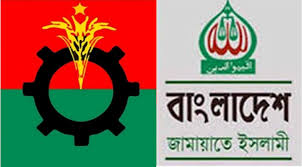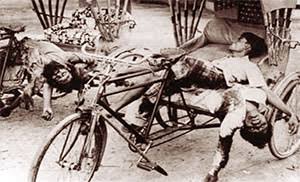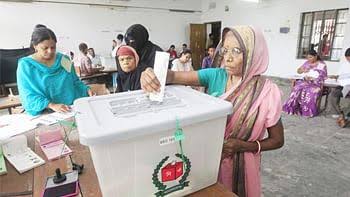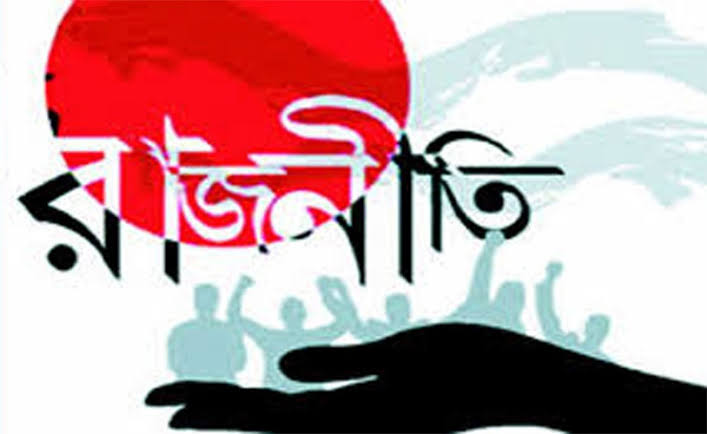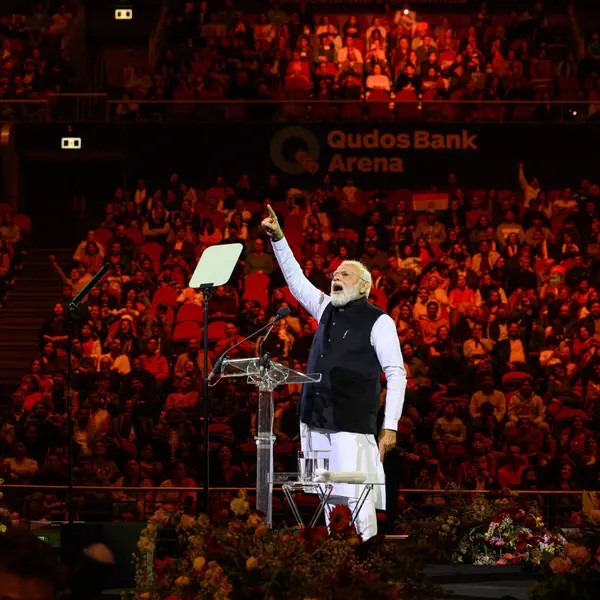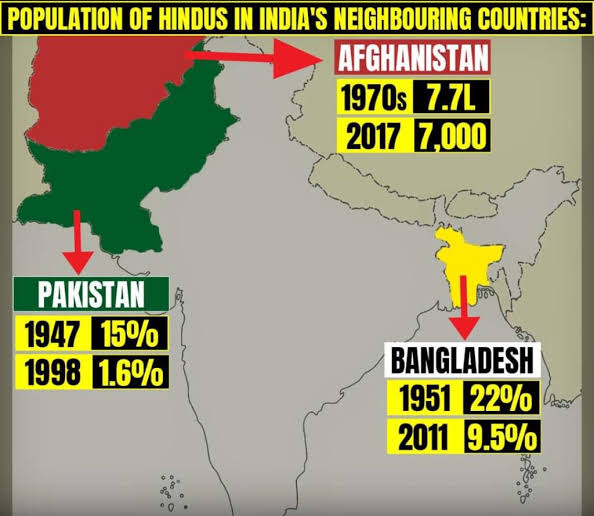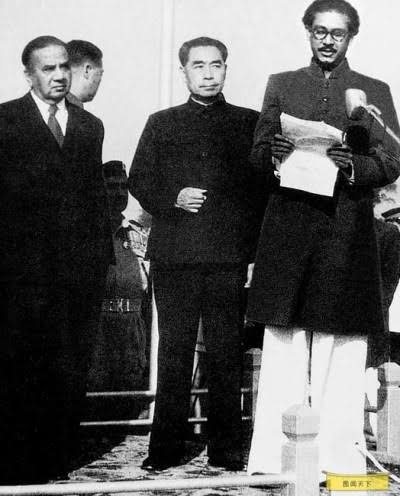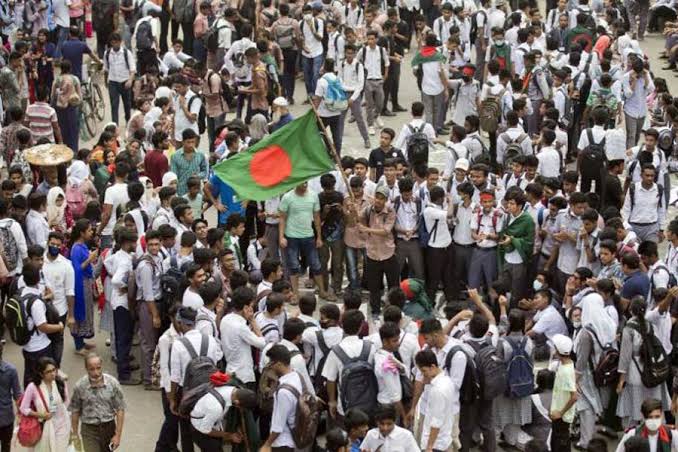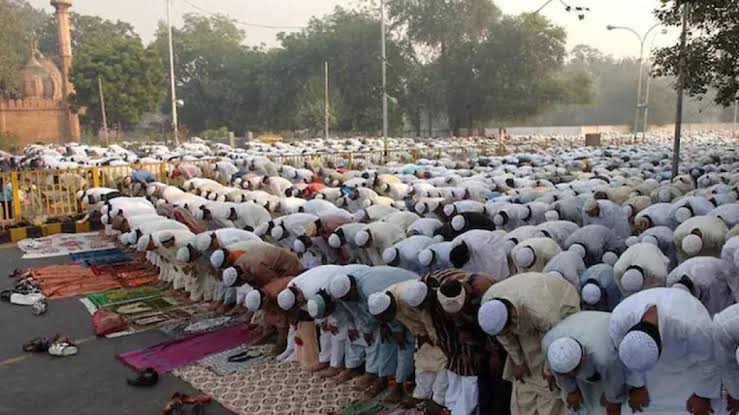বাংলাদেশ রেলওয়ে নেটওয়ার্কে নতুন সংযোজন পদ্মা সেতু
শঙ্কর সরকার, বাংলাদেশ পদ্মা সেতুর উপর রেল চলাচল বাংলাদেশের ক্রমবর্ধমান সড়ক যোগাযোগ ব্যবস্থার একটা নতুন অধ্যায়। বাংলাদেশ সরকারের পদ্মা সেতু নির্মাণের পরিকল্পনা বিশ্বব্যাংক অর্থ বিনিয়োগ বাতিল করলে ধারণা করা হয়েছিল বাংলাদেশ সরকার নিজস্ব অর্থায়নে এতবড় প্রকল্প বাস্তবায়ন করতে পারবে না এবং এ নিয়ে দেশে বিদেশে বিভিন্ন রকম আলোচনা সমালোচনা হয়। পদ্মা সেতুর নির্মাণে প্রথমে ১২ থেকে ১৫ হাজার কোটি টাকা নির্মাণ ব্যয় ধরা হয়েছিল। পদ্মা সেতু প্রকল্পের অর্থায়নে বিশ্বব্যাংক অস্বীকার করলে চীন প্রথমে পদ্মা সেতু প্রকল্পে অর্থায়ন করতে বাংলাদেশের পাশে দাঁড়ায় এবং পরে চীন পদ্মা সেতু ২ প্রকল্প আরিচা পাটুরিয়া ঘাটে অর্থায়নের জন্য আগ্রহ প্রকাশ করে ঘোষণা দেয়। পরে বাংলাদেশের অন্য বন্ধুদেশ মালয়েশিয়া পদ্মা সেতুর নির্মাণে অর্থ বিনিয়োগের জন্য বাংলাদেশ সরকারের কাছে প্রস্তাব করে এবং তারপর ভারত সরকারও বাংলাদেশ সরকারের নিকট পদ্মা সেতু নির্মাণে অর্থ বিনিয়োগের জন্য আগ্রহ প্রকাশ করে। পদ্মা সেতু প্রকল্পে বিশ্বব্যাংক অর্থায়ন থেকে সরে দাঁড়ানোয় এবং চীন, মালয়েশিয়া ও ভারতের অর্থ বিনিয়োগের আগ্রহ প্রকাশের পর বাংলাদেশের ক্ষমতাসীন শেখ হাসিনা সরকার পদ্মা সেতু প্রকল্প বিষয়টি নিয়ে আন্তঃমন্ত্রণালয় বৈঠকে পর্যালোচনা করলে দেখা যায় প্রকল্পের কাজ শেষ করতে ২০ বা ২৫ হাজার কোটি টাকা যেটাই খরচ হোক ৫ থেকে ৬ অর্থ বছরের মধ্যে লাগবে এবং বাংলাদেশ সরকার সেই অর্থ ৫/৬ অর্থ বছরের জাতীয় বাজেট থেকে খুব সহজেই খরচ করতে পারবে। সমস্ত টাকাটা এক অর্থ বছরের মধ্যে খরচ হবে না। সুতরাং বাংলাদেশ সরকার নিজস্ব অর্থায়নে সহজেই পদ্মা সেতু নির্মাণ করতে পারবে এবং শেখ হাসিনা সরকার সমস্ত প্রকল্প পর্যবেক্ষণ করে পদ্মা সেতু নির্মাণের সময়োপযোগী সাহসী কাজ শুরু করে এবং শেষ করে। অবশেষে দীর্ঘ দিনের অপেক্ষায় পর গত ৪ এপ্রিল ২০২৩ মঙ্গলবার বাংলাদেশ সরকারের মাননীয় প্রধানমন্ত্রী শেখ হাসিনা পদ্মা সেতুর উপর দিয়ে প্রথমবারের মত রেল যোগাযোগ উদ্বোধন করেন। শেষ হলো অপেক্ষার পালা। পদ্মা নদীর বুকে সড়ক পথে গাড়ি চলাচল করছে অনেক দিন এবার ছুটবে রেলগাড়ি। উন্মুক্ত হল যোগাযোগের নতুন দিগন্ত। প্রথমে ফরিদপুরের ভাঙ্গা থেকে সেতু অতিক্রম করে যাওয়া পর্যন্ত ‘গ্যাংকার’ চালানোর পরিকল্পনা ছিল। তবে এখন সাত বগির ট্রেন চালানোর সিদ্ধান্ত নেওয়া হয়েছে। সূত্রমতে পদ্মা সেতুর রেল যোগাযোগ প্রকল্পে চীন থেকে কেনা নতুন সাতটি বগি ট্রেনের বহরে যুক্ত হবে। ট্রেন চলাচল করবে আমেরিকা থেকে আনা নতুন ইঞ্জিন দিয়ে। ইঞ্জিন ও বগিগুলো সৈয়দপুরে রেলওয়ে কারখানায় রাখা ছিল। সেখান থেকে ফরিদপুরের ভাঙ্গার উদ্দেশ্য যাত্রা করে। নাম প্রকাশ না করার শর্তে রেলওয়ে মন্ত্রণালয়ের একজন উচ্চ পর্যায়ের কর্মকর্তা বলেন সেতুতে রেললাইন বসে যাবার পর তা পরিদর্শন করেছেন রেলমন্ত্রী। ঐদিন সেতুর উপর শুধু গ্যাংকার চালানোর পরিকল্পনা থাকলেও এখন আনুষ্ঠানিকভাবে রেলওয়ে ট্রায়াল কার্যক্রম উদ্বোধন করা হয়। উদ্বোধনী দিনে দুপুর ১২ টায় পদ্মা সেতুতে প্রথম যাত্রা শুরু হয় এবং দুপুর ২ টায় টেনটি ভাঙ্গা থেকে মাওয়া পৌঁছায়। ৬.১৫ কিলোমিটার পদ্মা সেতুতে এখন শতভাগ রেললাইন বসে গেছে। এই ভাঙ্গা থেকে মাওয়া পর্যন্ত টানা ৪২ কিলোমিটার রেলপথ এখন রেলচলাচলের জন্য প্রস্তুত। রেলের কর্মপরিকল্পনা অনুযায়ী প্রকল্পের অধীনে প্রথমে ঢাকা থেকে ভাঙ্গা পর্যন্ত ট্রেন চালানো হবে। এই রেলপথ চালু হলে আরও ছয়টি রেলপথ এই রেলপথের সাথে যুক্ত হবে। প্রাথমিক ভাবনায় রাজবাড়ী, গোপালগঞ্জ, দর্শনা, যশোরের বেনাপোল, খুলনা, রাজশাহীর ট্রেন এই পথে চালানোর পরিকল্পনা আছে। সেই ক্ষেত্রে ভবিষ্যতে ভারতে যাবার মৈত্রী ট্রেনও এই পথে যাতায়াত করবে । পদ্মা সেতুর রেলওয়ে প্রকল্প চালু করার আগে অনেক জায়গায় গ্যাঙকার পরীক্ষামূলক ভাবে চালানো হয়েছে। এদিকে ঢাকা থেকে মাওয়া অংশে ১০ কিলোমিটার রেলপথ বসানো হচ্ছে খুব দ্রুতগতিতে। মাওয়া ভাঙ্গা অংশে ১২টি বড় সেতু, ২৬.৯৭ কিলোমিটার বাঁধ, ৬৯টি কালভার্ট ও আন্ডারপাস, ৭১০ টি ওয়াকিং পাইল, ৬৮ টি ভায়াডাক্ট ২ পিলার, ৬৭ টি স্পান, ১০৮ টি ভায়াডাক্ট ৩ পিলার, ১০৭ টি স্পান বসানো হয়েছে। ঢাকা থেকে রেলওয়ে সেতুর উপর দিয়ে ঢাকা থেকে মাওয়া পর্যন্ত ৪২ কিলোমিটার বিশেষ ট্রেন যাতায়াত করবে। গেনডারিয়া, পাগলা, ডেমরা, কেরানীগঞ্জ এলাকায় খণ্ডখন্ডভাবে, রেললাইন বসানো হচ্ছে। বৃটিশ আমলের তৈরি সিঙ্গল রেলওয়ের পরিবর্তে বেশ মজবুত ও ঢালাই করে আংশিক ডবল লাইন রেলওয়ে নির্মাণ করা হচ্ছে। রেলওয়ে কর্মপরিকল্পনা অনুযায়ী পদ্মা রেলসেতু প্রকল্পটি বাস্তবায়নের মধ্য দিয়ে ঢাকা থেকে নারায়ণগঞ্জের ফতুল্লা, কেরানীগঞ্জ, হয়ে মুন্সীগঞ্জের লৌহজং হয়ে শরীয়তপুর, মাদারীপুর ও নড়াইল জেলা দিয়ে যশোরের সাথে রেল নেটওয়ার্ক যুক্ত হবে এবং এই যশোর ফরিদপুর ভাঙ্গা স্টেশনের সাথে রাজবাড়ী, কালুখালী, কুষ্টিয়া রেলওয়ে সেকশনটি পদ্মা সেতু হয়ে সরাসরি ঢাকার সঙ্গে যুক্ত হবে। বর্তমান রেলপথে ঢাকার সঙ্গে খুলনার দূরত্ব ৪৬০ কিলোমিটার। পদ্মা সেতু প্রকল্পের আওতায় নতুন রেলপথটি চালু হলে দূরত্ব কমবে ২১২ কিলোমিটার। এ ছাড়া অন্যান্য অঞ্চলের সঙ্গে নতুন পথে অনেক নতুন রেলযাত্রীর সংখ্যা বৃদ্ধি পাবে। তাতে প্রতিদিন সড়ক যোগাযোগের জন্য হাজার হাজার মানুষের ভোগান্তি কমবে, সময় বাঁচবে, জনজীবনে বয়ে আনবে নতুন মাত্রা। বাংলাদেশ রেলওয়ের এই নতুন পথে রেললাইন বসে গেলেও আরও কয়েক ধরনের কাজ বাকি আছে। সব কাজ শেষে নিয়মিত পরীক্ষামূলক চলাচলের ব্যবস্থা হবে। পদ্মা সেতুর এই নতুন প্রকল্প বাস্তবায়নের লক্ষ্যে যে সব কর্মকর্তা ও শ্রমিকরা দিনরাত পরিশ্রম করে যাচ্ছেন তাঁরা আশা করছেন আগামী সেপ্টেম্বর/অক্টোবর ২০২৩ নাগাদ এই পথ যাত্রী পরিবহনের জন্য সম্পূর্ণ তৈরি হয়ে যাবে। পদ্মা সেতুর রেলওয়ে সংযোগ প্রকল্প মোট ৩৯ হাজার ২৪৬ কোটি ৮০ লাখ টাকা নির্মিতব্যয় ধরা হয় তার মধ্যে ১৮ হাজার ২১০ কোটি ১১ লাখ টাকা দিচ্ছে বাংলাদেশ সরকার বাকি ২১ হাজার ৩৬ কোটি ৬৯ লাখ টাকা লোন দিচ্ছে চায়না এক্সিম ব্যাংক। প্রকল্পের মেয়াদ ধরা হয় ২০১৬ সালের ১ জানুয়ারি থেকে ২০২৪ সালের ৩০ জুন পর্যন্ত। ২০১৬ সালের ২৭ এপ্রিল প্রকল্পটি ফার্স্ট ট্রাক প্রকল্পের তালিকাভুক্ত করা হয়। পদ্মা সেতুর রেলওয়ে প্রকল্প শুধু রাজধানীর সাথে দেশের উত্তর ও দক্ষিণের রেল ও সড়ক যোগাযোগ স্থাপন করা হয়েছে তাই নয় সমগ্র বাংলাদেশ সড়ক ও রেলপথ একটি অভিন্ন নেটওয়ার্কের আওতায় আসছে। বাংলাদেশ, ভারত, নেপাল ও ভুটানের সমন্বয়ে একটি আধুনিক উন্নত দক্ষিণ এশিয়া গড়ে তুলতে সহায়ক ভূমিকা পালন করবে এই পদ্মা সেতু।


